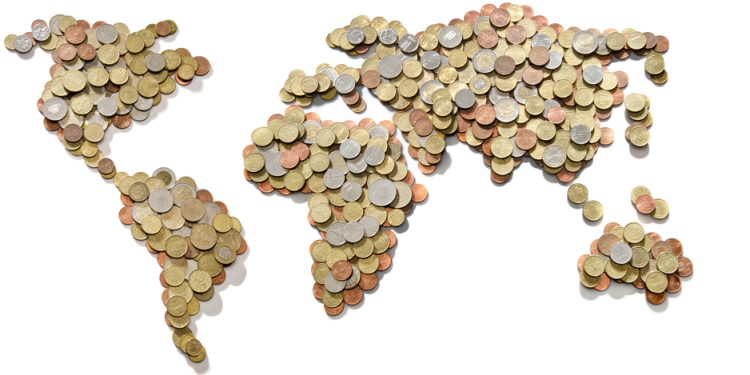
The latest edition of the HSBC Expat Explorer survey has arrived, and with it comes some insight into expats and their finances. We have a look at the results to find out some of the places to move to if you want to boost your finances, or where the most expats are property owners.
The most and least economic countries to move to

It is regarded as a home of the wealthy and known for offering a certain degree of financial secrecy, so the fact that Switzerland takes the top spot overall isn't all that surprising. It is ranked fourth for both the quality of expats' finances and working life. Switzerland is second for its local economy, which assesses, for example, ease of setting up a business. Norway (known for its high quality of life) is second overall though it comes in 11th and sixth for personal finances and its local economy, respectively. Nonetheless, it is the best country for expat working life. Germany is in third, overall, and is second place for your professional life prospects, followed by Singapore (ranked the overall best destination for expats considering economics, experience, and family) and the United Arab Emirates. Singapore is known as a hub for businesses and has adapted its policies to make it more attractive to startups, so its third place for the local economy seems warranted.
At the bottom end of the table, Egypt, Turkey, Brazil, Argentina, and Italy make up bottom five. For several of these countries, their global political and financial position can be largely attributed for their low ranking. Turkey, for example, came in last when it comes to the confidence expats have in its local economy (which may be a consequence of its perceived political instability).
Measuring expat income

22% of all expats surveyed moved abroad to improve their earnings, with 15% hoping to find purpose in their career. Overall, expats saw their income increase by 25% following their move abroad, with 14% seeing their income double, suggesting that the grass may well be greener on the other side. Furthermore, just over half of expats noted that they were able to save more in their host country than they could at home.
Expats in Switzerland report the highest income, on average, at USD 193, 006. This is followed by the emerging markets of India and China (USD 176,408 and USD 170,970, respectively), and the USA and Hong Kong. Given the notorious high cost of living in Hong Kong, it would seem that the there is far better value (and potentially quality of life) available in countries such as India and China, where you can live thriftily if you are keen to save money, or luxuriously if you want to make the absolute most of life in your host country.
When it comes to disposable income, 57% of those surveyed noted their disposable income had increased following their move abroad. When it came to the largest increased in disposable income, the middle eastern countries fared particularly well, suggesting they are a good place for expats hoping to improve their quality of life or increase their savings. Expats living in Saudi Arabia saw the highest increase, at 58%, the UAE came in third at 50%, Qatar was fourth with a 48% increase, and Kuwait was fifth following a 46% increase. Switzerland was the only non-Middle Eastern country to make the top five with a reported 54% increase in disposable income.
Expat property ownership

While only 9% of expats surveyed own property both in their home country and in their host country, 62% of expats own property (in any country). Regarding nationalities and property ownership, 77% of Sri Lankans who responded were property owners, equal to the percentage of Egyptians. In third were Brits, at 75%, followed by 74% of Indians and, finally, 72% of Ukrainians. In contrast, the countries with the highest reported levels of expat property ownership were Norway in first, France in second, Portugal third, New Zealand and South Africa. This may reflect countries where expats are most likely to envision themselves settling down long term (which 38% of all expats surveyed cited as a reason for buying property).



















